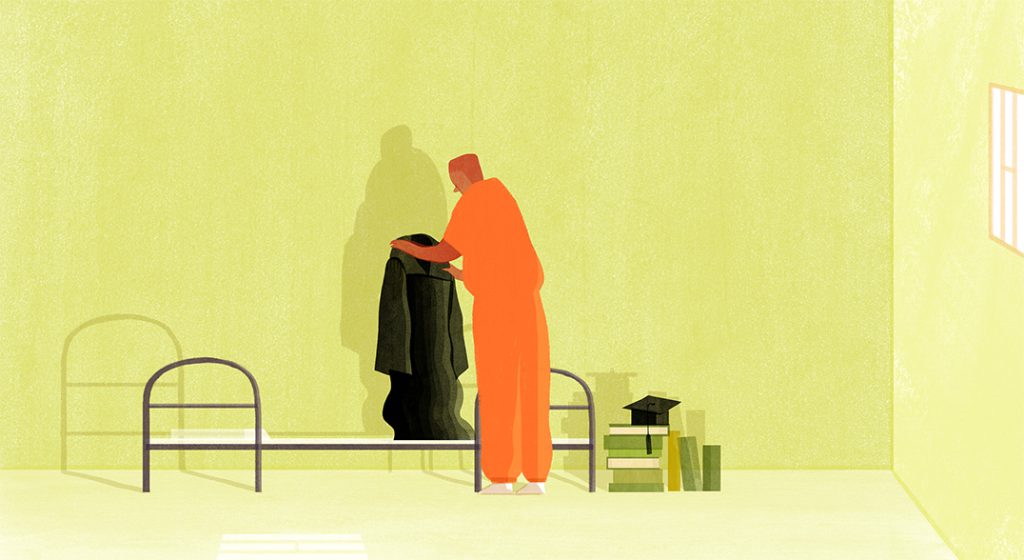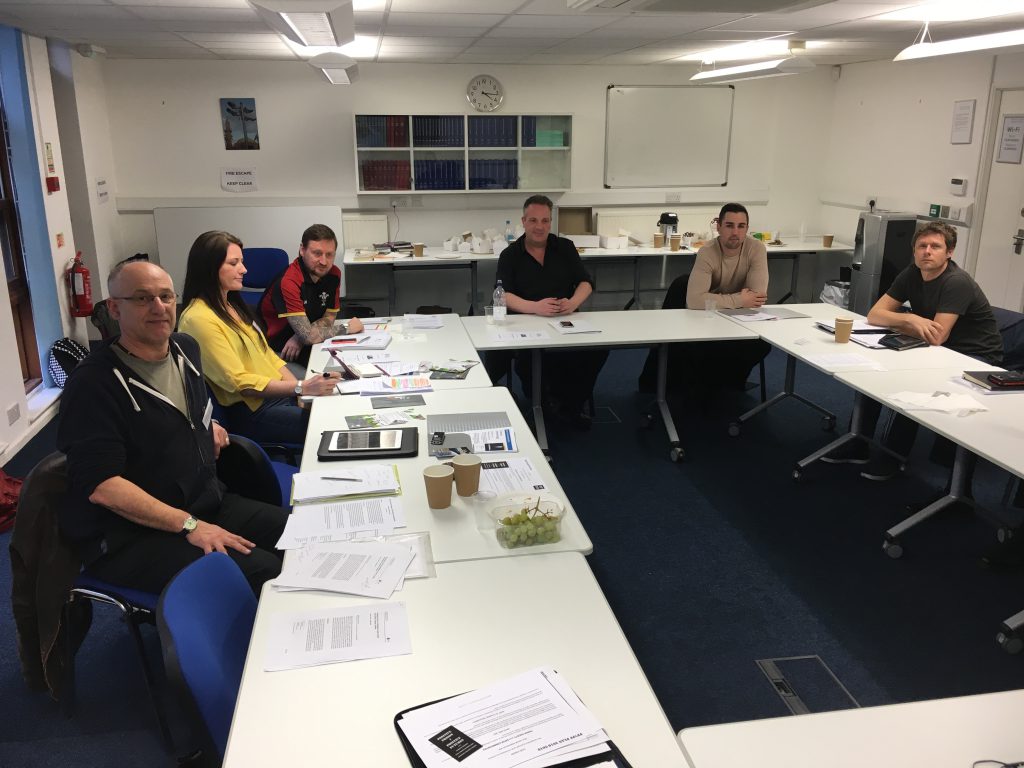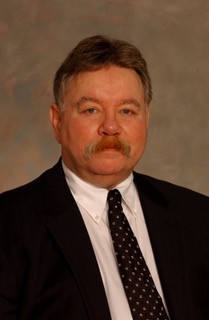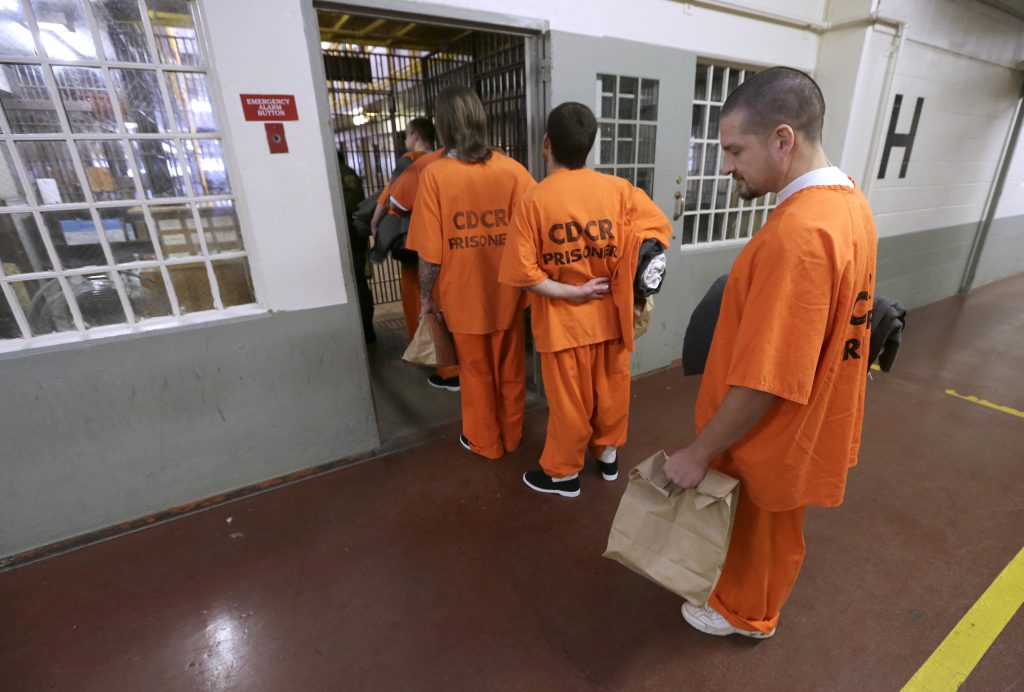When Ex-convicts Become Criminologists

One fresh, sunny morning this spring, a dozen ex-convicts gathered around a table in a back room down a quiet side street of London. Considering the company, the scene was sedate. Someone with a manslaughter conviction stubbed out a cigarette. Onetime drug dealers snacked on croissants. A man with tattoos covering his substantial forearms shuffled reading material on a table. Someone who once served a prison sentence for embezzlement put a kettle on and offered the others tea.
No police officer would worry about this crowd: It was an academic congregation of so-called convict criminologists.
Over the past few decades, some ex-convicts have turned to academia, aiming to put their experience “inside” to good use. They use their knowledge of the criminal justice system to select research questions and design studies. They use their history to gain prisoners’ trust. And they work to counteract what they see as a strong bias in academic criminology toward the perspectives of authorities in the criminal justice system.
In the U.K., few such researchers had met or worked together before; this was their first formal gathering. Their full-day session was part academic symposium and part support group, and it included ex-convict undergraduates, graduate students, and university researchers. Attendees shared the outcomes of their work and discussed the ethical, philosophical, and logistical struggles of being both an ex-convict and an academic.
“This day is really important to me,” began Rod Earle, one of the conveners. “It’s the first time we’re all in a room at the same time.” Earle, who served a brief sentence in 1982 for incitement to violence after publishing a Molotov cocktail recipe in a punk fanzine, is a criminologist at the Open University in Milton Keynes, U.K. He now publishes less incendiary articles, in which he incites ex-prisoners to scholarship. He recently wrote a book on convict criminology.
Earle went on to explain the funding procedures for the attendees’ travel to the workshop. A few seats away, a man who served time for murder peered through his glasses at the reimbursement paperwork. And then they got to work.
The idea of convict criminology isn’t new. In 1887, the polymath Peter Kropotkin published the book In Russian and French Prisons based on his experience of incarceration, perhaps making him the first example of a convict criminologist. As criminology gained momentum during the 20th century, criminologist Frank Tannenbaum at Columbia University in New York City, who had served a sentence for labor disturbances, and later the sociologist John Irwin at San Francisco State University, who had done time for armed robbery, did similar work before convict criminology had a name.
By the 1990s, there were enough American academic researchers with histories of imprisonment that they began hearing about one another. Irwin brought many of them together for the first time at a workshop that was part of the annual American Society of Criminology conference in San Diego in 1997.
One of the attendees of that 1997 meeting was Stephen C. Richards, a convict criminologist now retired from the University of Wisconsin, Oshkosh. Richards celebrated his university graduation in 1986 while serving a nine-year federal prison sentence for conspiracy to distribute marijuana. He had been studying by mail. “They threw me in solitary the day I graduated,” he remembers—as retaliation, he says, for completing his degree. “Prisons don’t like educated people.” That discouragement did not stop Richards, who continued studying for his master’s and doctorate after release.
Back in the 1990s, it seemed to Richards that much of the criminology literature was superficial and “so bourgeois,” he recalls. “The academics had accepted so many premises: that there were only a few bad apples, that [prison authorities] didn’t torture, that they had rehabilitation.” The work those academics produced “tended to gloss over the horrors of prison, inventing a sanitized presentation, without the smell of fear and noise of desperation known so well by the men and women that live in cages,” Richards wrote in Critical Criminology in 2013.
Researchers who have served time are in a rare position to design studies and propose hypotheses that challenge the people in charge.
Most criminologists have no direct experience of imprisonment. In addition, many often shy away from the sort of close interaction with individual ex-prisoners necessary to conduct ethnography. As a result, a lot of criminology is based on survey data. This has left a gap in U.S. prison ethnography. All this, argue Richards and others, has left blind spots in the research, distorted the academic discourse, and in turn misshapen public policy at a time when incarceration rates have been climbing, even while violent crime rates have been dropping.
Scholars who have been prisoners say they have something different to offer.
One of the clear advantages is background knowledge. “In recent decades, researchers have had a lot of difficulty getting access to prisons,” notes criminologist Justin Piché of the University of Ottawa, an editor at the Journal of Prisoners on Prisons, an academic journal that publishes work by prisoners, with some contributions by interested nonprisoners. Prisons don’t often put academic study at the top of their priorities, and have at times proven to be reluctant to let researchers in at all or have restricted researchers’ view of prison life to sanitized glimpses. “In that context, former prisoners are able to shed light into confinement,” says Piché. Researchers who have served time, he adds, are in a rare position to design studies and propose hypotheses that challenge the people in charge.
Richards, for example, found out during his imprisonment that if a prisoner applied for and was awarded federal education funding, the grant became affiliated with that prison—even if the prisoner was subsequently moved to another facility. Such subtle injustices may not be apparent to those without any inside experience.
Prisoners are also more likely to open up to people with whom they can identify, says Jack Rinaldi, an Open University student at the U.K. meeting. More traditional researchers may not inspire the same level of trust in interviewees, he notes. “Just because they spoke to 10 criminals does not mean they got 10 honest answers,” he says.
On top of these practical benefits, firsthand experience of imprisonment also helps ex-prisoner researchers break down the barriers between academia and prisoners. “There’s a tendency with any social science, whether it’s anthropology or psychology … to immediately ‘other’ those people that we’re studying,” says criminologist Shadd Maruna at the University of Manchester in the U.K. “The beauty of convict criminology, and the broader movement that it’s part of, is that it’s a constant reminder [to mainstream criminologists] to break out of that.”
Opening up about a past prison sentence can be a double-edged sword, however. It might help to gain an interviewee’s trust, but it might also raise doubts about objectivity among peers or make it harder to gain an academic position. The question of “coming out” as an ex-convict pervaded much of the U.K. meeting.
Attendee William Davies of Leeds Beckett University is very open about his past. He displays tattoos from his wrists to his elbows, and his Twitter handle is @Billthecrim. He says he uses disclosure about his criminal past, which goes back to age 11, as a sort of social currency in exchange for inmates’ time and participation in his research.
Another ex-prisoner researcher at the workshop, Jason Warr of the University of Lincoln, U.K., is more reticent. “I have a problem with tribalism in academia,” he says. Labeling a researcher as one thing or another “can constrain both that which you study and how your work is interpreted by others,” he explains. Reviewers of his papers have often asked him to “declare his positionality” as an ex-prisoner, he says, but he has pushed back, unwilling to label himself that way in his work.
Others have opted for fuzzier or, in other cases, more formal labels than “convict criminologist.” Those at the meeting have variously called themselves “ex-prisoner scholars,” “people with convictions,” “a criminologist with a past in prison,” the downright vague “men and women with a history of experience,” and the even vaguer “person with a history.”
In contrast, Marie-Claire O’Brien, managing director of The New Leaf Initiative, a community-interest company which provides career guidance to ex-prisoners upon their release, told everyone at the meeting about her conviction. In her view, ex-prisoners have a responsibility to be open about their prison histories, both to earn rapport and to motivate prisoners to bring their voices into academic conversations.
Some convict criminologists make an explicit effort to work with prisoners in designing and conducting research. Sacha Darke of the University of Westminster, London, who has no criminal convictions, and his colleague Andreas Aresti, who has served time in prison, collaborate closely with nonacademic prisoners and ex-prisoners, and are editing a special issue of the Journal of Prisoners on Prisons in which academics are sharing co-authorship on papers with current prisoners.
There are also signs that academia is embracing the image of its ex-prisoner faculty. Not long ago, Davies’ university began including him and some of his students who have tattoos in photo shoots for recruitment materials, he says. “They want to attract ‘alternative’ students,” he chuckles.
Much of the work published by and about “convict criminologists” centers on soul-searching about how to be both a researcher and a research subject, sometimes with the added complication of being an activist. But it is clear that this set of researchers is also contributing to the field. “That’s the crux of convict criminology,” Richards says, “to use our own experience to improve the academic literature.”
Much of Richards’ academic research focused on understanding the reasons ex-convicts tend to wind up back in prison. It isn’t just that ex-convicts are “bad apples” or come from societies that perpetuate illegal activity, he argued. The criminal justice system is also to blame. In the late 1990s, Richards coined the term “perpetual incarceration machine” to describe how strict parole conditions, and the pervasiveness of pre-employment criminal background checks, among other challenges, have contributed to driving people back to prison.
His interest in the “machine” may have emerged from his own experience of it. “Federal agents came to my house. They pointed guns in my face, threatened my wife, inventoried my furniture,” he says, all in the name of checking whether he was complying with the terms of his release and staying out of the drug trade.
Irwin, who helped launch the American convict criminology movement, died in 2010 and is today renowned for his insight into how prison culture is linked to life outside prison walls. That connection might seem obvious today, but in the 1970s and 1980s, his ideas ran counter to the prevailing views at the time. Researchers tended to approach prisons as foreign places that one could visit and understand in isolation, apart from the broader culture. Instead, Irwin argued, prisoners bring culture with them from the outside. In his first book, The Felon, he detailed how outside behavior translated into “career” paths on the inside, ranging from thieves to junkies.
At the U.K. workshop, a number of participants said that studies like these were inspiration for further work—and a beacon of light to let them know that they’re not alone. “I read John Irwin, and I realized I wasn’t the only one,” says Michael Irwin (no relation), a former prisoner turned graduate student at Queen’s University, Belfast. The realization helped motivate him to complete his master’s degree and embark on a Ph.D., he says.
“A lot of these guys, from the time they’re young, they’re being told they’re not going to go anywhere,” Richards says. “They take pride in the fact that there’s a handful of ex-cons who are professors.”
As the workshop wound down, the group began discussing the logistics of how to set up a website or even launch a journal dedicated to convict criminology. They wrestled with whether to apply for nonprofit status in order to seek and handle funding, or whether they should ask one of their universities to handle funding for them. Near the end, Earle paused and reminded participants that most of all they needed to continue publishing papers: “We’ll be known by our writing.”
Correction: November 24, 2017
An earlier version of this story reported that William Davies’ university required annual updates on his criminal history. That was an error: The updates are a requirement of the prison where he teaches some of his classes. The corrected story omits the original passage.
This article was republished on Pacific Standard.






























